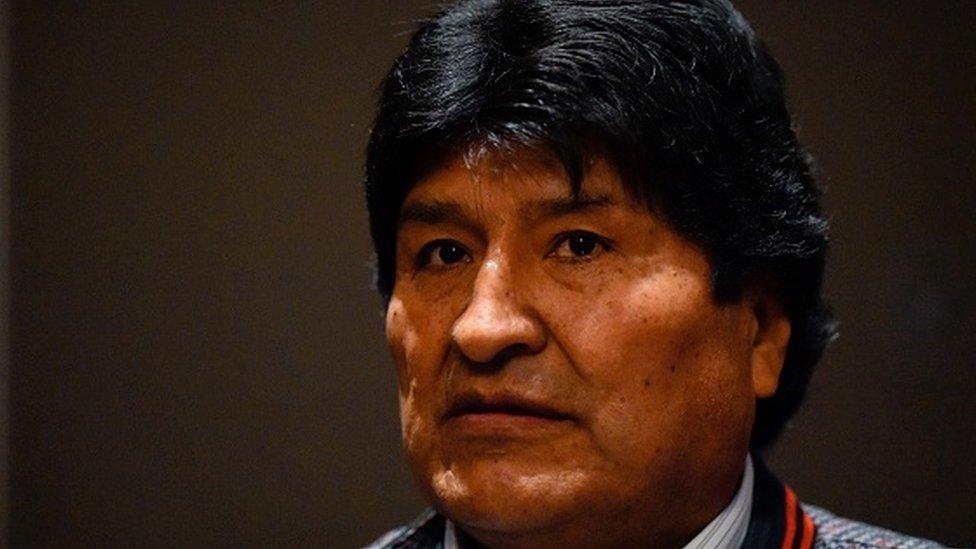Bolivian judge annuls Evo Morales's arrest warrant
- Published
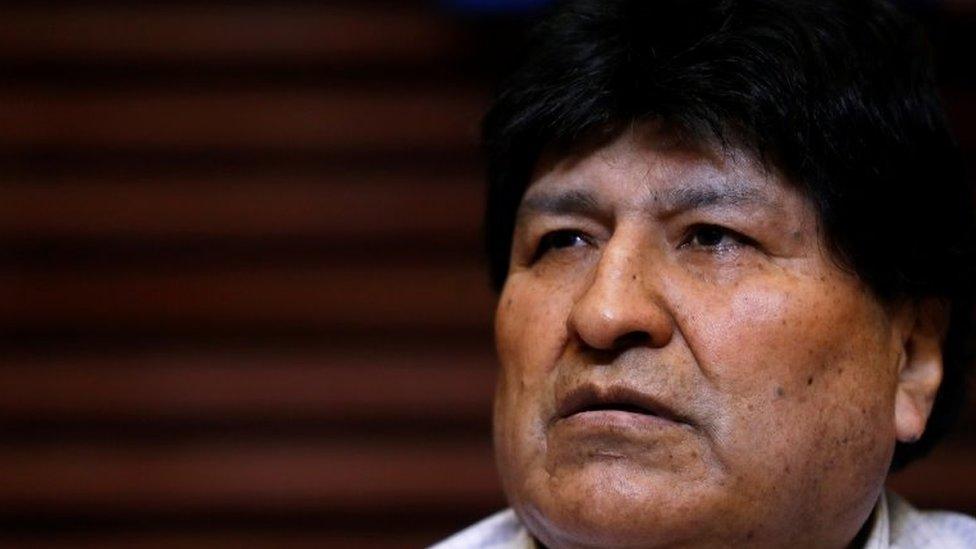
Evo Morales currently remains in exile in Argentina
A judge in Bolivia has annulled the arrest warrant which had been issued for ex-President Evo Morales last year for alleged sedition and terrorism.
Mr Morales is living in exile after leaving Bolivia in November 2019 amid mass protests over allegations of vote rigging in the presidential election.
He said he would return to Bolivia if his Mas party won the re-run of the election, which it did on 18 October.
The annulment paves the way for him to return without fear of arrest.
Why was there an arrest warrant for him?
Following Mr Morales's departure from Bolivia, an interim government led by right-wing Senator Jeanine Áñez took over power.
She said at the time that Mr Morales should "face justice".
Áñez: "He should face justice – because [he] left in the most cowardly way"
Days later, the interior minister in the interim government, Arturo Murillo, alleged that Mr Morales had fomented unrest in the weeks following the disputed election.
Dozens of people died in clashes both between opposing political groups, and between protesters and the security forces.
Mr Murillo produced audio recordings which he said proved that Mr Morales had organised roadblocks which prevented food from reaching some of Bolivia's main cities.
He said the ex-leader's alleged role in the unrest amounted to "sedition and terrorism" and prosecutors filed a criminal complaint.
Mr Morales said that the recordings had been "manipulated" and questioned why the interim government was not investigating the deaths of protesters instead.
What's the annulment based on?
Mr Morales's lawyer argued successfully that due process had not been followed in the case.
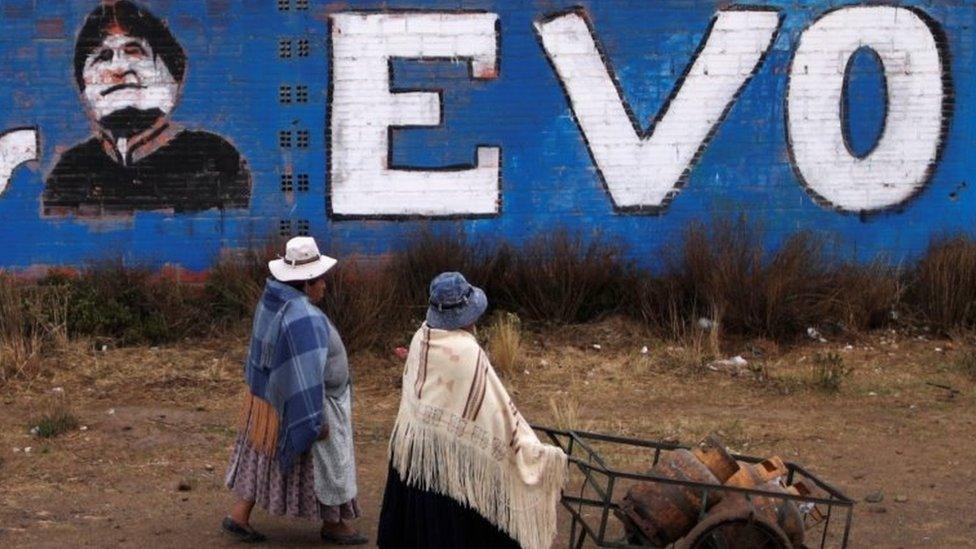
Evo Morales said he would return to Bolivia if his party won
A judicial expert told local media that Mr Morales had not been served with the necessary paperwork even though his whereabouts in exile in Argentina were known. The arrest warrant issued against him was therefore annulled.
However, the criminal complaint itself has not been dismissed and investigations continue, according to judicial officials.
Prosecutors are expected to summon Mr Morales to appear in a court in Bolivia in connection with the case in due course.
Mr Morales has long maintained that the sedition and terrorism complaint as well as allegations he committed statutory rape are part of a political vendetta waged against him by the interim government.
He has denied any wrongdoing and said that he was confident that eventually all criminal complaints against him would be dropped.
What's next?
The annulment of the arrest warrant comes just days after Mr Morales's socialist party won a resounding victory in the re-run of the 2019 election.
Before the election, Mr Morales had said that if his party's candidate, Luis Arce, won, he would return to Bolivia the following day.
But more than a week after the election, he remains in exile in Argentina. Speaking to AFP news agency on Monday, he said that it was not up to him whether he would return but to Bolivia's "social movements".
"The social movements are still debating. They're the ones that will decide," he said, adding that 11 of November had been suggested as a possible date for his return, a year to the day after his departure.
Meanwhile, President-Elect Luis Arce has been distancing himself from Mr Morales. Asked in an interview with the BBC's Newshour programme the day after the election whether he was Mr Morales's' "useful puppet", he answered: "I am not Evo Morales".
- Published19 October 2020
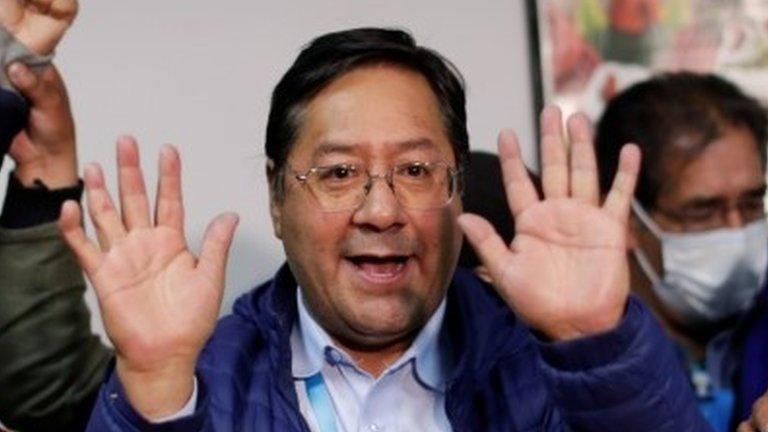
- Published18 September 2020
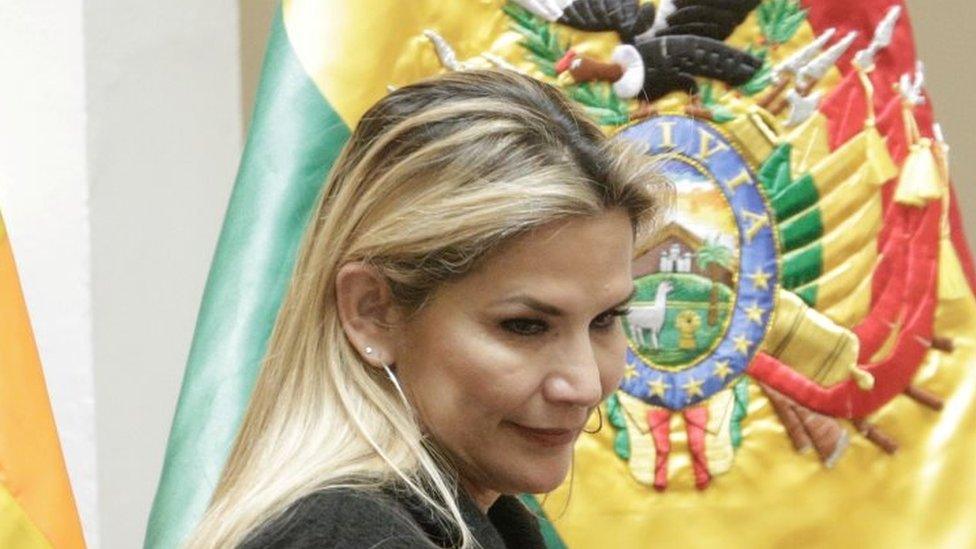
- Published8 September 2020
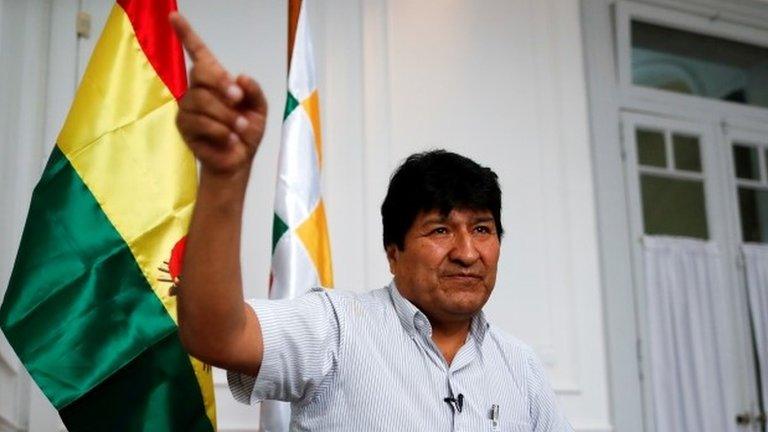
- Published21 August 2020
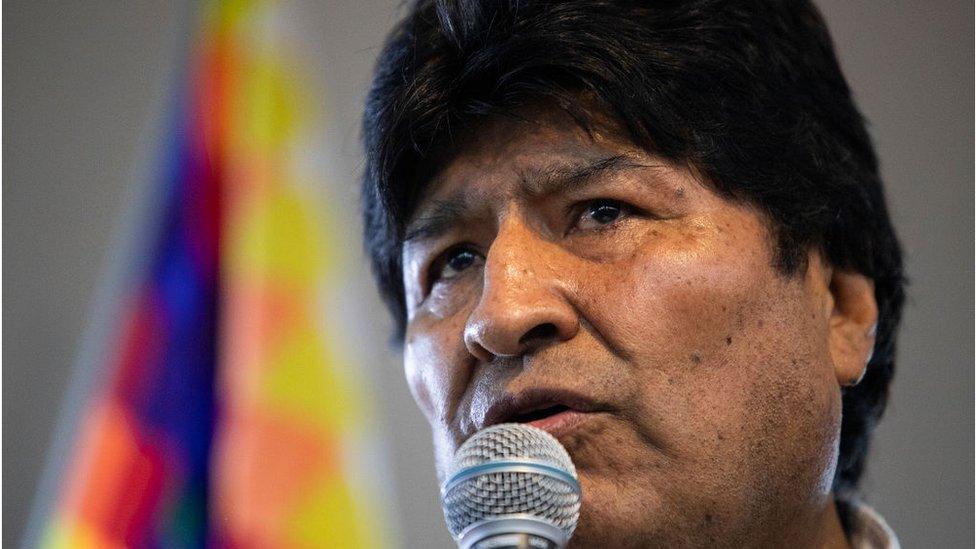
- Published30 December 2019
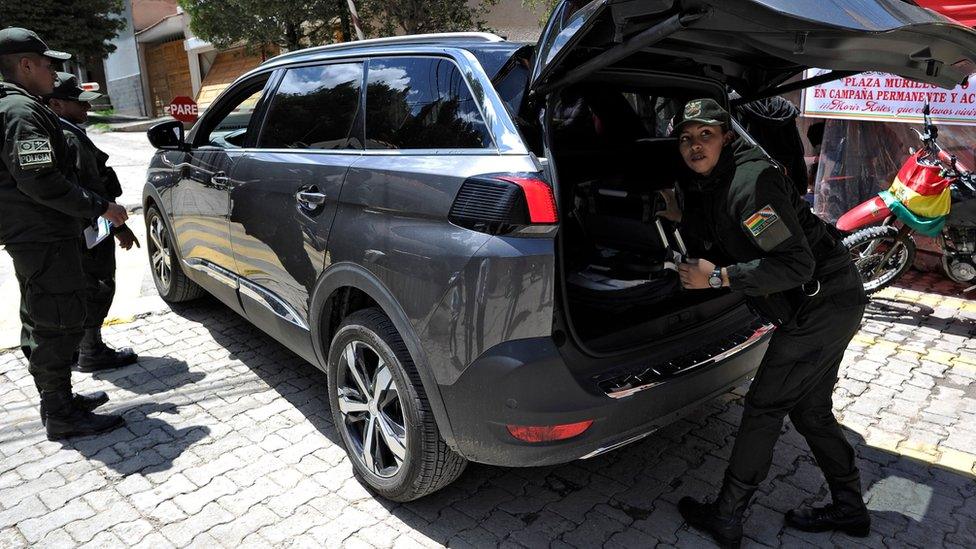
- Published22 November 2019
